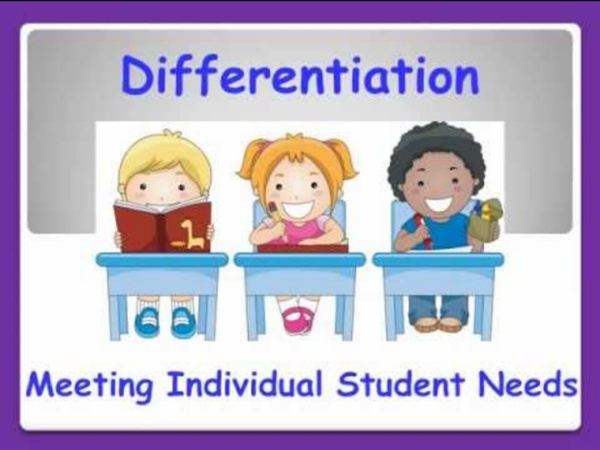



An Updated Digital Differentiation Model This is part of a Digital Differentiation model, my way i of weaving a web of flexible tools together for teaching and learning. To keep the model relevant, frequent updates are required, as new tools and trends emerge. To access the most current resources, please click on the tab at the top of this blog: Digital Differentiation - Current Updating Ten months ago I published a Digital Differentiation model on this blog. Technology is a tool that can be used to help teachers facilitate learning experiences that address the diverse learning needs of all students and help them develop 21st Century Skills, an idea supported by the Common Core. At it's most basic level, digital tools can be used to help students find, understand and use information. The goal is to design student-driven learning experiences that are fueled by standards-based Essential Questions and facilitated by digital tools to provide students with flexible learning paths. 3 Components: Essential Questions Flexible Learning Paths
Answers To The Biggest Questions About Flipped Classrooms Flipped classrooms are truly changing education (see ‘ How To Flip An Entire School ‘ and a report on how the flipped classroom can improve test scores .) As a school psychologist intern highly interested in ‘flipping classrooms’, I have consulted with many teachers and school staff that have adopted (or have expressed interest in) the flipped classroom model, and those that have implemented the model, have nothing but great things to say. Below are some frequent questions I get about flipped classrooms from teachers; and my answers, based on personal interactions and professional consultations with teachers. Has it “solved” the homework problem? It is a giant leap in the right direction. What she found was that a majority of students were watching the videos, with only 1 or 2 out of 19 students that would ‘forget’ to watch the video. How did she ensure students were watching the videos? Does the advanced technology motivate the students?
What is Differentiated Instruction? | Differentiation Central Differentiation is responsive teaching rather than one size fits all teaching (Tomlinson, 2005). This means that teachers proactively plan varied approaches to what students need to learn, how they will learn it, and/or how they will show what they have learned in order to increase the likelihood that each student will learn as much as he or she can, as efficiently as possible (Tomlinson, 2003). Students come to our classrooms with unique differences as people and therefore as learners. Our students have varied degrees of background knowledge and readiness to learn, different life experiences, cultural orientations, languages, interests, and preferences for how they learn best, and different feelings about themselves as learners and about school. Differentiated instruction is both a philosophy and a way of teaching that respects the different learning needs of students and expects all students to experience success as learners. High-Quality Curriculum Continual Assessment Respectful Tasks
How to Plan Lessons to Engage 21st Century Students About ETR Community EdTechReview (ETR) is a community of and for everyone involved in education technology to connect and collaborate both online and offline to discover, learn, utilize and share about the best ways technology can improve learning, teaching, and leading in the 21st century. EdTechReview spreads awareness on education technology and its role in 21st century education through best research and practices of using technology in education, and by facilitating events, training, professional development, and consultation in its adoption and implementation.
List of Great Tools for Different Kinds of Learners About ETR Community EdTechReview (ETR) is a community of and for everyone involved in education technology to connect and collaborate both online and offline to discover, learn, utilize and share about the best ways technology can improve learning, teaching, and leading in the 21st century. EdTechReview spreads awareness on education technology and its role in 21st century education through best research and practices of using technology in education, and by facilitating events, training, professional development, and consultation in its adoption and implementation.
Multiple Intelligences: What Does the Research Say? Many educators have had the experience of not being able to reach some students until presenting the information in a completely different way or providing new options for student expression. Perhaps it was a student who struggled with writing until the teacher provided the option to create a graphic story, which blossomed into a beautiful and complex narrative. Or maybe it was a student who just couldn't seem to grasp fractions, until he created them by separating oranges into slices. Because of these kinds of experiences, the theory of multiple intelligences resonates with many educators. Howard Gardner's Eight Intelligences The theory of multiple intelligences challenges the idea of a single IQ, where human beings have one central "computer" where intelligence is housed. Verbal-linguistic intelligence refers to an individual's ability to analyze information and produce work that involves oral and written language, such as speeches, books, and emails. Practices Supported by Research